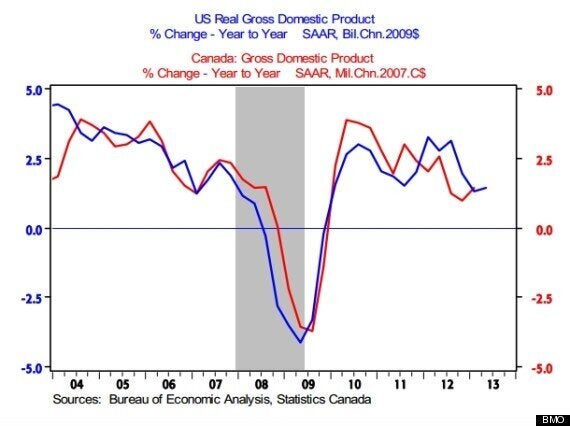EV Mandate Backlash: Car Dealerships Push For Alternatives

Table of Contents
Financial Burden of EV Infrastructure Upgrades
The transition to an electric vehicle-centric market presents a substantial financial hurdle for car dealerships. The costs associated with adapting to this new landscape are significant and threaten the viability of many businesses.
High Costs of Installation and Maintenance
Dealerships face enormous expenses in upgrading their facilities to accommodate EVs. This includes:
- Expensive fast-charging stations: Installing fast chargers capable of quickly replenishing EV batteries requires substantial upfront investment.
- Grid upgrades: Existing electrical grids may need significant upgrades to handle the increased power demand from multiple fast chargers.
- Specialized EV technician training: Dealerships need to invest in training their mechanics to diagnose and repair EV components, a skillset different from traditional internal combustion engine (ICE) repair.
Many dealerships, particularly smaller ones, lack the capital for such investments. This could force them into mergers, acquisitions, or even closure, potentially leading to a consolidation of the automotive retail sector and reducing competition.
Impact on Profit Margins
The financial strain extends beyond infrastructure costs. EV sales often present lower profit margins compared to traditional gasoline vehicles, further impacting dealership profitability. Key contributing factors include:
- Reduced service revenue: EVs have fewer moving parts than gasoline cars, resulting in less frequent and less complex maintenance needs, thus lowering service revenue.
- Increased inventory costs for EVs: The higher upfront cost of EVs compared to gasoline vehicles ties up more capital in inventory.
- Competition from direct-to-consumer EV brands: Established automakers and new EV-only manufacturers are increasingly bypassing traditional dealerships, selling directly to consumers.
This combination of factors is squeezing profits, leading many dealerships to advocate for a more gradual and supportive transition to EVs.
Challenges in Sales and Service of EVs
Beyond the financial burdens, dealerships face significant operational challenges in selling and servicing EVs.
Lack of Consumer Demand in Certain Markets
While EV adoption is growing, it's not uniform across all regions. Dealerships in areas with:
- Geographic limitations: Sparse populations or challenging terrains may limit the practicality of EVs.
- Consumer awareness of EVs: Lack of understanding about EV technology, charging infrastructure, and running costs can hinder consumer adoption.
- Charging infrastructure gaps: Insufficient public charging stations create "range anxiety" for potential EV buyers, limiting demand.
face unique challenges and require targeted support to bridge the gap between supply and demand. Government incentives and investment in charging infrastructure are crucial in these areas.
Specialized Training Requirements
The technical complexities of EVs necessitate specialized training for dealership staff. This includes:
- Battery technology training: Understanding the intricacies of EV batteries, including their chemistry, charging, and safety protocols, is crucial.
- Charging infrastructure knowledge: Staff needs to be proficient in handling various charging standards and troubleshooting charging issues.
- Electric motor repair: Diagnosing and repairing electric motors and associated power electronics requires a different skillset compared to ICE engine repair.
The cost of providing this comprehensive training is a significant burden, adding pressure on already strained dealership budgets.
Advocacy for Alternative Solutions
Facing these mounting challenges, car dealerships are actively seeking alternative solutions and advocating for policy changes.
Push for Gradual Transition and Incentives
Many dealerships believe a more gradual transition is necessary. They are advocating for:
- Extended timelines for EV mandates: Allowing more time for adaptation and infrastructure development.
- Financial aid for infrastructure upgrades: Government subsidies and grants to help dealerships cover the costs of installing EV charging stations and upgrading their facilities.
- Tax credits for EV sales: Incentives to encourage EV sales and help dealerships offset lower profit margins.
A phased approach would allow dealerships to manage the transition effectively, ensuring business viability throughout the process.
Exploration of Alternative Fuel Vehicles
Dealerships are also exploring diversification strategies, such as:
- Hybrid vehicles as a bridge technology: Hybrids offer a stepping stone towards full electrification, combining the benefits of both gasoline and electric powertrains.
- Hydrogen fuel cell vehicles: Hydrogen fuel cells offer a potential alternative to battery-electric vehicles, with faster refueling times and longer ranges.
- Biomethane fuel: Utilizing renewable biomethane as a fuel source offers a more sustainable alternative to traditional gasoline.
This diversification allows dealerships to cater to a wider range of consumer preferences and remain competitive in a rapidly evolving automotive market.
Conclusion
The EV mandate backlash underscores the significant challenges facing car dealerships during the transition to electric vehicles. The high costs of infrastructure upgrades, the complexities of EV sales and service, and the varying levels of consumer demand necessitate a more nuanced and collaborative approach. Dealerships are actively seeking alternative solutions, including a more gradual transition, substantial financial incentives, and the exploration of alternative fuel vehicle options. A collaborative effort between policymakers, manufacturers, and dealerships is crucial to ensure a successful and sustainable transition to a cleaner transportation future. Ignoring the concerns of dealerships will only exacerbate the EV mandate backlash and hinder the broader adoption of electric vehicles. Continued dialogue and consideration of these concerns are vital to navigate this crucial period in the automotive industry and prevent unnecessary hardship for car dealerships. Let's work together to find a solution that supports both environmental sustainability and economic viability, avoiding a crippling EV mandate backlash and promoting responsible EV adoption.

Featured Posts
-
 Tqryr Jdyd En Asear Alktakyt Alywm Alathnyn 14 Abryl 2025 Bmsr
Apr 23, 2025
Tqryr Jdyd En Asear Alktakyt Alywm Alathnyn 14 Abryl 2025 Bmsr
Apr 23, 2025 -
 Chistiy Ponedelnik 2025 Traditsii Chto Mozhno I Nelzya Kak Pravilno Postitsya
Apr 23, 2025
Chistiy Ponedelnik 2025 Traditsii Chto Mozhno I Nelzya Kak Pravilno Postitsya
Apr 23, 2025 -
 The Undervalued Asset How Middle Managers Drive Company Performance And Employee Satisfaction
Apr 23, 2025
The Undervalued Asset How Middle Managers Drive Company Performance And Employee Satisfaction
Apr 23, 2025 -
 Canadian Economists Predict Deeper Recession Despite Lower Tariffs
Apr 23, 2025
Canadian Economists Predict Deeper Recession Despite Lower Tariffs
Apr 23, 2025 -
 Yankees Historic Night 9 Home Runs Judges Triple Power Surge
Apr 23, 2025
Yankees Historic Night 9 Home Runs Judges Triple Power Surge
Apr 23, 2025
